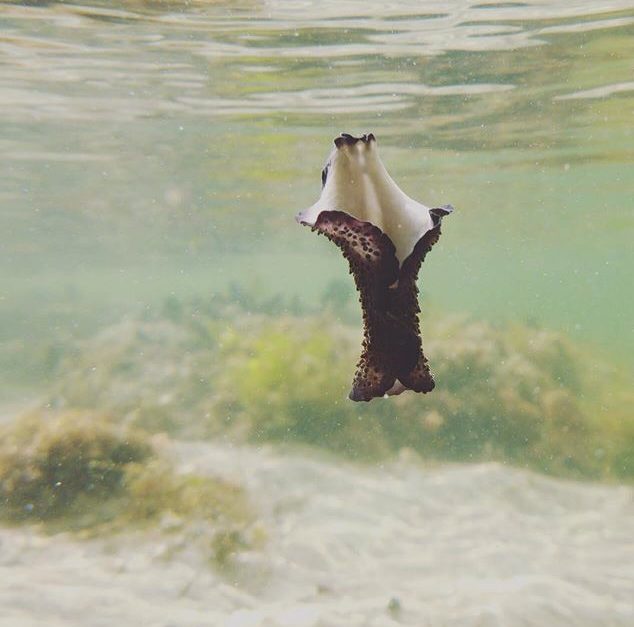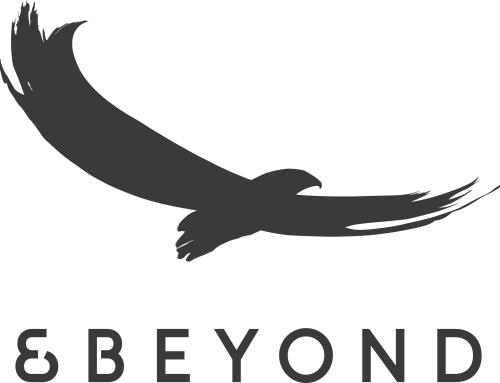For reasons unknown, I am having a very hard time trying to figure out a subject for this blog, so I think I will keep things simple this time and write about something I know very well – myself. I want to write about how I made it here today as a marine biologist on diveLIVE; not to brag or try to put focus on myself, but in the hopes of inspiring any budding or future marine scientists to keep on striving towards your goals and highlight the importance of focus and perseverance. If I can land my dream job, trust me, anybody can.
The former years of my life were spent on a property in the minuscule town of Yambuk, Victoria (Australia). Here we were nestled between a large river and the beach that it fed into. What a place to grow up! It wasn’t hard to spark up a connection with the ocean and nature in general. My parents would always take my three brothers and I to play around on the beach and I would spend hours sitting and fishing with my knowledgeable uncle. Throughout these trips he would talk to me about all aspects of marine ecosystems and oceanography, at the time I just thought of this as cool things that the world does, not as the science that my career would be based around. What I didn’t see or learn about the ocean through experiences, I would see on nature documentaries (the only time we were allowed to stay up past our bedtime) and read in books. It was through this that I decided I wanted to be a marine biologist – at the ripe old age of 4 years.

My teenage years were very different from my childhood due to moving inland to a small, country town called Naracoorte in South Australia. This town was less than ideal for an aspiring marine biologist, lying 100 km (62 miles) from the nearest coastline. It was a slow, rural town with a “play football (Aussie rules) and party all weekend” type of culture and I sort of settled into that lifestyle. What was weird about being in this situation of isolation from the coast was that it only fueled my desire to get out and study marine biology. To do this, I first needed to know my science – and I didn’t know my science. My earlier years of education felt pretty cruisey to me so I never really had to get into any good study habits, so when I was slapped by the hand of science (more so chemistry and physics) in my later years of high school I didn’t really know how to study up on concepts I wasn’t grasping. This was the first obstacle I ever really had to face and was the first time I realised that hard work gets you places. Throughout year 10 and 11, I was failing or getting bad grades in all my science topics but through hours of study and a lot of help from my peers, I managed to get my grades high enough to get an offer for a Bachelor of Science (Marine Biology and Aquaculture) (Honours) at Flinders University in Adelaide, South Australia. I readily accepted this offer and moved to the city.
Adelaide is a beautiful place to attend university. We all described it as a large country town as it has some beautiful scenery that you wouldn’t expect to see in the city and because everybody knew everybody. Most importantly, it was nestled along a beautiful rugged coastline with great waves and marine life. I won’t lie and say university was a dream-run, things weren’t always great and I was broke more often than not, but I had a great network of support from family and friends that kept me grounded and going. Apart from these hiccups, I had the best time ever. I describe my academic experience (best not to get into the social experience) as a 4.5 year documentary. Coming from an inland high school, I was used to learning stock standard, boring information and losing interest. This was a completely different story. The more I learned, the more I wanted to know which made it very easy to get decent grades and stay focused. It also made me feel very lucky to have this relationship with my field of study, particularly after seeing how stressed and unhappy people were studying things they were only doing because of the dollar figure their course could get them or because they could breeze their way through and spend more time at the uni bar than studying.

After finishing my studies, I was lucky enough to be hired back by the university to teach and do research for the laboratories. This was great, after 19 years I had finally reached my goal and was working in marine biology. The only problem was that this was all contract work and in November last year, that contract unexpectedly ran out with nothing promising looming any time soon. Along with having no work, my lease expired on the house I was living in and I was forced to move back to Naracoorte to live with my parents. If I was put in this situation a few years before I would not have handled it well at all and could have easily given up, but my wiser self held it out and tried to stay positive despite job prospects being bleak. I honestly believe it was this attitude that got me this job.
During this down time I was left to reflect a lot on what I had been doing. I loved marine science and I know it is a vital tool in ocean conservation, but all this knowledge is restricted to the scientific community. What little info does reach the general public is typically doom and gloom. These factors, combined with my love for the teaching role I held at the university, prompted me to start looking for a job in education as I really started to feel like the best way to achieve some role in helping the environment was to educate those who are not as aware as we who have spent several years studying it. This job search led me to the discovery of an advert for a live, underwater, marine biologist. After a few months of living a low-key, humbler lifestyle and hunting for jobs, all the stars aligned and I got the interview of a lifetime. Now here I am working from underneath the full face-mask on a completely unique project and get to share my passion with the world, whilst educating and inspiring in the process. It’s true what they say – find a job you love and you’ll never have to work a day in your life.

The last thing I wanted to say is that no matter what you may be trying to achieve, always know and accept mistakes and setbacks will be made, and unless you’re really unlucky, generally your reaction and ability to learn from these experiences will dictate the final result and outcome. Throughout my journey to where I am now I have really messed up at times, sometimes through genuine error and, more times than I would like to admit, through failing to think before acting. Sometimes the repercussions of this have been harsh, but looking back, without them I don’t t think I would be here now. After accepting and learning, all that’s left to do is brush it off and keep moving forward.
Written by: Pat Fitzgerald
Cover image by: James Hendry




I am currently in the depressing state of finishing my marine biology degree to find no jobs and living back with the parents, it is so heart breaking when you’ve always dreamed of something and you follow all your steps towards the goal to then have no achievement at the end but thank you for this motivation to keep trying and believing the right job will eventually happen.